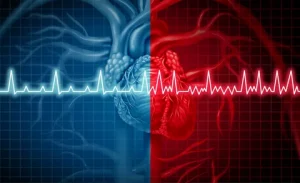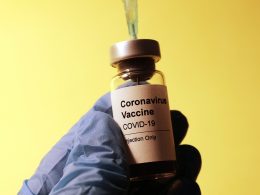Understanding High Heart Rate
A high heart rate, medically known as tachycardia, is a condition where the heart beats faster than normal. While occasional increases in heart rate are natural responses to physical activity, stress, or excitement, persistent elevation may signal an underlying health issue. Understanding the reasons behind a pounding pulse is crucial for maintaining heart health and overall well-being.
Types of High Heart Rate
- Sinus Tachycardia: This type of tachycardia originates from the sinus node, the heart’s natural pacemaker. It often occurs in response to factors such as stress, exercise, fever, or caffeine intake.
- Atrial Fibrillation: Atrial fibrillation is characterized by irregular and rapid heartbeats originating from the heart’s upper chambers. It can lead to complications like stroke or heart failure if left untreated.
- Supraventricular Tachycardia (SVT): SVT involves rapid heart rates originating above the heart’s ventricles. It can cause palpitations, dizziness, and shortness of breath.
- Ventricular Tachycardia (VT): VT originates from the heart’s lower chambers and can be life-threatening if sustained for prolonged periods.

Causes of High Heart Rate
Physical Exertion
Engaging in strenuous physical activities, such as intense workouts or running, can temporarily elevate heart rate. This is a normal physiological response to meet increased oxygen demands during exercise.
Stress and Anxiety
Emotional stress or anxiety triggers the release of stress hormones like adrenaline, which can accelerate heart rate. Chronic stress may contribute to persistent tachycardia and adversely affect cardiovascular health.
Dehydration
Inadequate fluid intake can lead to dehydration, causing the heart to work harder to circulate blood throughout the body. Dehydration-induced tachycardia can be alleviated by maintaining proper hydration levels.
Caffeine and Stimulants
Consumption of caffeinated beverages, energy drinks, or certain medications containing stimulants can stimulate the nervous system and elevate heart rate. Limiting intake of these substances can help regulate heart rate.
Medications
Some medications, such as decongestants, asthma inhalers, and certain antidepressants, may have side effects that include increased heart rate. It’s essential to consult a healthcare professional if experiencing tachycardia while on medication.

Medical Conditions
Underlying medical conditions like thyroid disorders, heart disease, electrolyte imbalances, and anemia can contribute to persistent high heart rates. Proper diagnosis and management of these conditions are essential for controlling tachycardia. Explore More About (Vanish Kidney Stones Naturally)
Symptoms of High Heart Rate
- Palpitations: Feeling a rapid or irregular heartbeat.
- Shortness of Breath: Difficulty breathing or breathlessness.
- Dizziness or Lightheadedness: Sensation of feeling faint or dizzy.
- Chest Discomfort: Pain, pressure, or discomfort in the chest.
- Fatigue: Unexplained tiredness or exhaustion.
- Sweating: Excessive sweating without exertion or heat.
Diagnosing and Treating High Heart Rate
Diagnosis
Diagnosing high heart rate involves a comprehensive evaluation of medical history, physical examination, and diagnostic tests such as:
- Electrocardiogram (ECG/EKG): Records the heart’s electrical activity to detect irregularities.
- Holter Monitor: A portable device worn to continuously monitor heart rhythms over 24 to 48 hours.
- Blood Tests: Checking thyroid function, electrolyte levels, and cardiac enzymes.
- Echocardiogram: Uses sound waves to create images of the heart’s structure and function.
Treatment
Treatment for high heart rate depends on the underlying cause and severity of symptoms:
- Lifestyle Modifications: Adopting a heart-healthy lifestyle, including regular exercise, stress management techniques, and a balanced diet.
- Medications: Prescribed medications such as beta-blockers, calcium channel blockers, or anti-arrhythmic drugs to regulate heart rate.
- Cardioversion: Electrical cardioversion may be performed to restore normal heart rhythm in certain cases.
- Catheter Ablation: A minimally invasive procedure to treat arrhythmias by targeting abnormal heart tissue.
- Implantable Devices: Devices like pacemakers or implantable cardioverter-defibrillators (ICDs) may be recommended for long-term management.
Prevention Tips for Maintaining Heart Health
- Regular Exercise: Engage in aerobic activities like walking, swimming, or cycling to strengthen the heart and improve cardiovascular fitness.
- Healthy Diet: Consume a balanced diet rich in fruits, vegetables, whole grains, lean proteins, and healthy fats to support heart health.
- Stress Management: Practice relaxation techniques such as deep breathing, meditation, or yoga to reduce stress and promote emotional well-being.
- Limit Stimulant Intake: Reduce consumption of caffeine, nicotine, and other stimulants that can elevate heart rate.
- Stay Hydrated: Drink an adequate amount of water throughout the day to maintain hydration levels and support proper heart function.
- Regular Check-ups: Schedule routine medical check-ups to monitor heart health and detect any underlying conditions early.
Conclusion
Understanding the reasons for a high heart rate is essential for maintaining cardiovascular health and preventing complications. By recognizing potential triggers, adopting healthy lifestyle habits, and seeking timely medical evaluation, individuals can effectively manage tachycardia and promote overall well-being.












